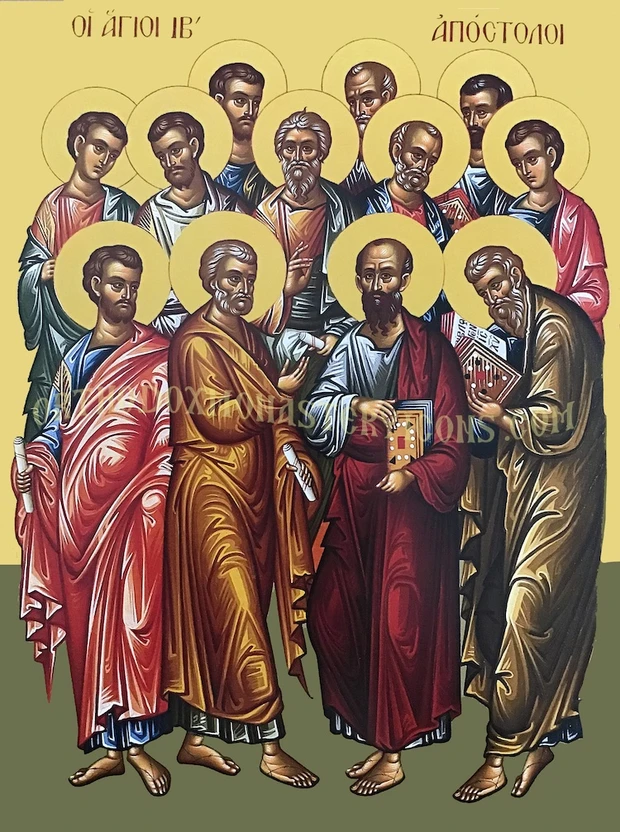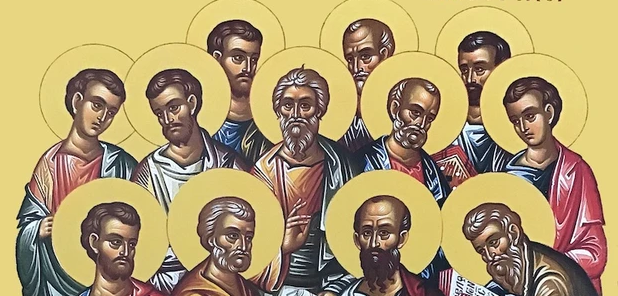The Allegiance to Systemic Greed
Eleventh Sunday Scripture Readings

People seem to be fond of boasting about our country using superlatives like “greatest,” “best,” and “most.” Some even consider it to be exceptional. There’s no doubt that there’s truth to it. We’re the fourth largest country in the world. We rank third among the most populous countries. We’re by far the richest country in the world, seventy percent wealthier than our closest competitor, China. And yet…are you ready? Nearly half the countries on the planet have a lower poverty rate than we do. Somewhere around fifteen percent of the people in this country make less than the median income of $31,000 per year—that’s nearly fifty million people. And the average income for those people is about $18,000 per year or only $1,500 per month. That’s their average income. About 600,000 of these people are unhoused at any given time.
To what can we attribute these appalling numbers? Greed, pure and simple. It’s not just the greed of the super-wealthy or corporate greed. It’s systemic greed. Systemic greed happens when greed seeps into every aspect of a culture. It’s not just economics, but politics, media and communications, transportation, education, energy, environment, justice, medicine and healthcare, and even religion. It’s become part of the social structure itself. When greed is the driving force behind and within a society, people become collateral damage. Systemic greed creates and promotes poverty, and poverty kills. This is nothing new—it’s as old as civilization itself. What’s new is that, at least in this country, systemic greed has been repackaged and is being widely promoted as a form of Christianity.
Let’s take a look at how poverty is the necessary result of systemic greed. There’s nothing wrong with profits. Profits provide livelihoods and promote technological and social advancement. When profits assure that everyone involved receives a fair share of both the benefits and the risks, everybody wins. Something changes radically when a business becomes investor owned. The whole thrust of the business changes. Those who are actively involved in the functioning of the business become functionaries whose sole purpose is to produce profits for the investors. Employees at every level shift from the assets column to the liabilities column, and it’s the role of leadership to minimize the liabilities to maximize the profits. The result is, of course, lower or stagnant wages, fewer benefits, and poorer working conditions. Say hello to the working poor.
As investorship grows, so does their wealth. As wealth grows, so does their political influence, making it increasingly more difficult to limit the flow of wealth upward, toward the investor class. After all, with systemic greed controlling the communications media, only those who can procure sufficient capital to be able to afford effective advertising can even get their message out. The effect is the gradual creation of a plutocracy—government by the wealthy for the wealthy at the expense of the poor whose voice and influence shrink to nothing.
These poor are now a mass of unemployed, underemployed, and underpaid workers who are left without support to walk a precarious tightrope, living hand-to-mouth. Quality food, clothing, and shelter are beyond their reach. The automobile and oil industries have been remarkably successful first in eliminating public transportation like passenger rail and streetcars, then in blocking all but the most minimal investments in the skeletal remains. So the poor are locked into using automobiles, often older, unreliable, and costly to maintain, and are at the mercy of companies who set the price for fuel. Likewise, affordable housing for low-income people is almost never convenient to work, so without a car, profitable work becomes unavailable.
Cutting corners to survive has other fallouts. Good quality food becomes a luxury item. Because of the added inconveniences of being poor—like inadequate heating and cooling, substandard housing, long working hours at multiple jobs, and lack of affordable childcare—any sort of self-care is a struggle to maintain. Health is precarious at best. And, because of the systemic greed of the insurance and pharmaceutical industries, effective and affordable medical care is out of reach for these people. Without health maintenance, healthcare devolves into crisis management. As we are well aware, all it takes is one family health crisis to collapse the entire house of cards. Government and social agency aid is only a band-aid. The system is so stacked against the poor, that it’s practically impossible for any of them to pull themselves up out of poverty, even with assistance.
None if this is really news, is it? The point of all this is that systemic greed has infected and overtaken all of the social structures I mentioned before: economics, politics, communications, transportation, education, environment, justice, medicine, and even religion. Those who support systemic greed know how to manipulate people. Take the evangelical churches who are now so involved in politics. They cared nothing about the abortion question until Jerry Falwell discovered it could be turned into a money-generating crusade. The same is true about the evangelical anti-LGBTQ and anti-trans movements. They wave those flags and the money pours in. Their causes have little to do with morality and everything to do with economics. The so-called “prosperity gospel” is blasphemy.
Why am I talking about this today? Because this whole system of greed that drives our country—and we’re not alone, we’re just the worst example of it—runs absolutely contrary to the gospel of Jesus Christ. Look at today’s gospel. Matthew gives us the call and mission of Christ’s apostles. These are they whom Jesus called and sent to carry on his redemptive work. Just as Jesus did, they were to proclaim in word and deed that the healing power of the reign of God was here. For the apostles, there would be no profit incentive, no quid-pro-quo, and no minimum income level or net worth.
To whom were these apostles sent? We read that “Jesus’s heart was moved to pity for [the crowds] because they were troubled and abandoned, like sheep without a shepherd.” The sheep without a shepherd that Jesus was referring to were those called עם הארץ (‘am ha’areṣ), “the people of the land.” That was a contemptuous term that the Pharisees used to refer to those poor masses of people who were either ignorant of the Law of Moses or too poor to obey it. The sheep without a shepherd, the people of the land, were those whom the rich and powerful, the educated and elite, turned their backs on then—and still do. They don’t hate the poor and destitute, they just don’t care. You know that the opposite of love is not hate, it’s indifference. The mission of Jesus and his apostles was to bring compassion and hope to such as these.
What, then, is our mission as disciples of Jesus, gifted with and empowered by his Holy Spirit? Our mission is not to cure poverty, hunger, disease, or homelessness. Few of us have been called, like Francis of Assisi, to make ourselves poor like they are. Our mission is one of understanding and appreciation both of the plight of the poor and of the forces of systemic greed that rob them of their ability to provide themselves with the necessities of life. Our mission is to educate ourselves about the socioeconomic forces of systemic greed, to lend our support to those who are able to make a difference, and even to speak truth to power if we should have the opportunity. But this is only the beginning. There are no easy answers. Whatever we do, our mission is to proclaim that the reign of God is at hand, a reign of compassion and healing, a reign of love and understanding, a reign of peace.
Get articles from H. Les Brown delivered to your email inbox.
